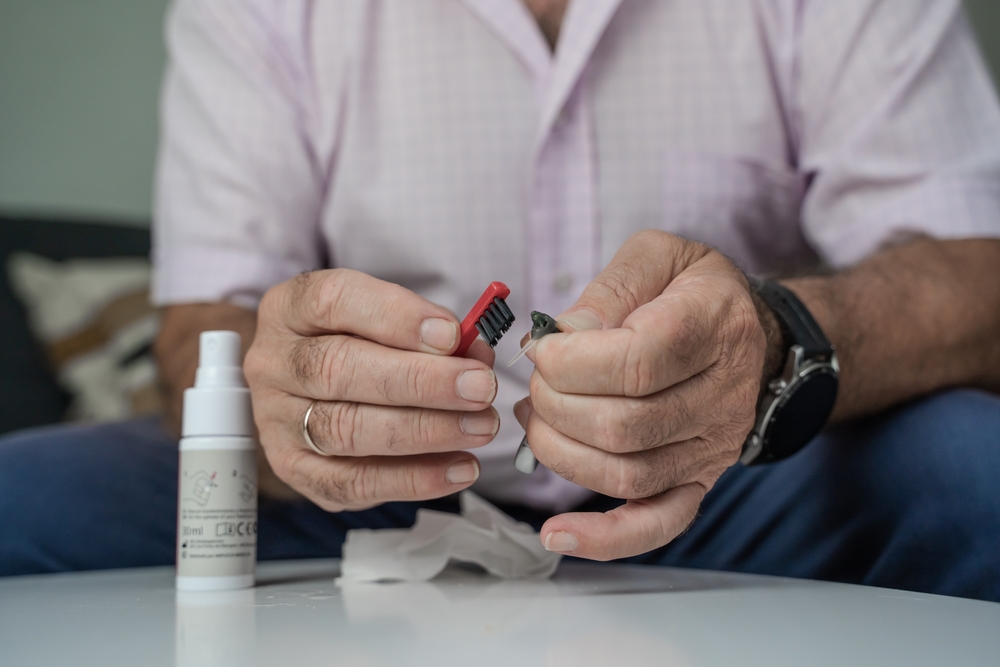Hearing aids can be life-changing, offering better communication and superior quality of life. However, some people experience headaches when they first start using hearing aids. While this can be frustrating, the good news is that these headaches are usually temporary and easy to manage with the right care and adjustments. Let’s dive into why these headaches happen and how to prevent or treat them!
Common causes of headaches from hearing aids
- Improper Fit
If your hearing aid isn’t fitted correctly, it can put pressure on sensitive parts of the ear, leading to discomfort and headaches. If you just got a new hearing aid and you’re experiencing headaches, an ill-fitting device is probably to blame. - Sound Overload
Your brain needs time to adjust to processing amplified sounds. At first, hearing things you previously missed—like background noise—can feel overwhelming and trigger headaches. However, this phenomenon should self-correct before long. - High Volume Settings
If the hearing aids are set too loud, the increased auditory input can cause sensory fatigue, resulting in headaches. Try starting out at a lower volume and slowly increasing over time as you adjust to your new normal. - Feedback and Whistling
Hearing aids that produce feedback or a high-pitched whistling sound can irritate the ears and lead to tension headaches. Talk to your doctor if your device is producing sounds that are causing agitation. - Adjustment Period
Remember: Your brain needs time to adapt to using your hearing aid. During this period, some people experience mild discomfort, including headaches, as the brain re-learns how to process sounds.
How to treat and prevent headaches
- Get a Proper Fitting: Make sure your hearing aids are professionally fitted to avoid pressure points in your ear canal.
- Adjust Volume Gradually: Start with a comfortable volume level and slowly increase it to avoid overwhelming your auditory system.
- Use Noise Filters: Modern hearing aids come with background noise reduction features. If your device doesn’t have this, ask your audiologist about upgrading or adjusting the settings.
- Take Breaks: During the adjustment period, give your ears and brain some rest throughout the day to prevent sensory fatigue.
- Regular Check-ups: Stay in contact with your audiologist for fine-tuning adjustments, especially if your device is causing discomfort.
When to see a hearing specialist for your headaches
If the headaches persist beyond the initial adjustment period or are accompanied by other symptoms—like dizziness, ear pain, or nausea—it’s time to see a hearing specialist.
Persistent headaches may indicate that your device settings are incorrect or that there’s an underlying issue, such as an ear infection or hearing aid malfunction.
A well-fitted hearing aid can improve your life
While headaches caused by hearing aids can be annoying, they are usually temporary and easy to resolve with professional help. The right hearing aid, properly adjusted to fit your needs, can significantly enhance your quality of life without causing discomfort. If you experience any issues, reach out to your audiologist—your comfort and hearing health matter! At the end of the day, if your hearing aid is causing you pain, your doctor knows you’re likely to stop wearing it.
Hearing aid-related headaches
If you’re experiencing headaches from hearing aids, don’t worry—they’re just a bump in the road to better hearing. What you’re experiencing is common, and can most likely be resolved with a few tweaks. With the right care and adjustments, you’ll be back on track, enjoying conversations, music, and the little sounds of life in no time!
Find a hearing specialist in your area if you are suffering from hearing-aid related headaches.



